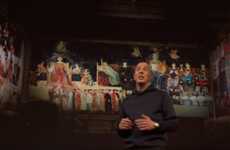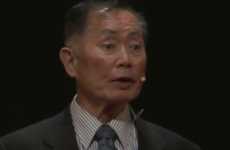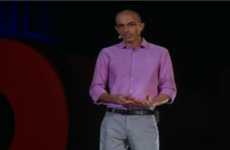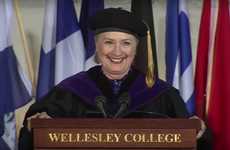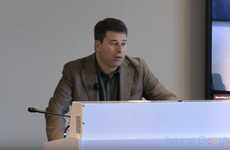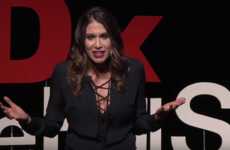
Need Inspiration?
Get inspired by 4,000+ keynote speaker videos & our founder, a top keynote speaker on innovation.
Brett Hennig's Talk on True Democracy Considers Replacing Politicians
Riley von Niessen — July 18, 2018 — Keynote Trends
Brett Hennig, an author, activist, and the Founder of the Sortition Foundation, delivered a talk on true democracy for a TED event, in which he considers what would happen if politicians were replaced with randomly selected citizens, a system that dates back to ancient Athens.
At a time of rising inequality, unaddressed climate change issues, the refugee crisis and other major issues, Hennig shows that it's vital to rethink how a true democracy is guided, in order for the greater good of the people to be at the focus, rather than the individual gains of corrupt career politicians.
Although it's been shown that a liberal democracy is the best solution, the political system has been distorted by outside interests, personal economic gain, and various other factors. This has caused evidence-based law to be put to the side in many cases, as religious or otherwise biased viewpoints are allowed to take over.
A solution to this, according to Hennig, is sortitian, otherwise known as random selection. The idea behind this is that a person is randomly chosen to be put in parliament for a number of years, with the aim being to select people that represent the actual economic and social state of the country. This would mean 50% of parliament would be women, many would be young, and only a few would be wealthy.
With this system, societal questions and problems would be addressed through clear deliberation, with solutions influenced by experts from different fields. Although difficult to institute, sortitian has been shown to work when applied in a number of different examples. It's shown that when the majority of people are tasked with a role that requires them to act responsibly, they tend to do so when they don't have ulterior motives.
Although he states that distorting influences would continue to exist in this system, Hennig shows it would help to fix the broken democracy that currently exists. While it may take time to see this enacted on a large scale, changes can be implemented in small scale scenarios to help drive change, such as within community meetings or at schools.
At a time of rising inequality, unaddressed climate change issues, the refugee crisis and other major issues, Hennig shows that it's vital to rethink how a true democracy is guided, in order for the greater good of the people to be at the focus, rather than the individual gains of corrupt career politicians.
Although it's been shown that a liberal democracy is the best solution, the political system has been distorted by outside interests, personal economic gain, and various other factors. This has caused evidence-based law to be put to the side in many cases, as religious or otherwise biased viewpoints are allowed to take over.
A solution to this, according to Hennig, is sortitian, otherwise known as random selection. The idea behind this is that a person is randomly chosen to be put in parliament for a number of years, with the aim being to select people that represent the actual economic and social state of the country. This would mean 50% of parliament would be women, many would be young, and only a few would be wealthy.
With this system, societal questions and problems would be addressed through clear deliberation, with solutions influenced by experts from different fields. Although difficult to institute, sortitian has been shown to work when applied in a number of different examples. It's shown that when the majority of people are tasked with a role that requires them to act responsibly, they tend to do so when they don't have ulterior motives.
Although he states that distorting influences would continue to exist in this system, Hennig shows it would help to fix the broken democracy that currently exists. While it may take time to see this enacted on a large scale, changes can be implemented in small scale scenarios to help drive change, such as within community meetings or at schools.
2.1
Score
Popularity
Activity
Freshness



